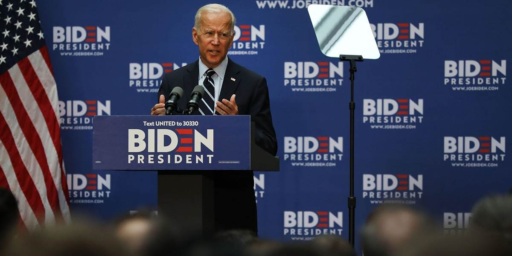Acireman Foreign Policy
 I’d like to bring an article in the Hoover Institutions’s publication, Policy Review, A Moral Core for U.S. Foreign Policy by Derek Chollet and Tod Lindberg, to your attention. In the article the authors note that
I’d like to bring an article in the Hoover Institutions’s publication, Policy Review, A Moral Core for U.S. Foreign Policy by Derek Chollet and Tod Lindberg, to your attention. In the article the authors note that
…after two successive presidents of opposite political parties (Bill Clinton and George W. Bush) have argued that spreading American values is itself a vital interest, there is growing skepticism in many quarters about whether trying to do so is worth significant costs, or even a true interest of the United States at all. Facts matter, and after several difficult years of pursuing a foreign policy framed as a fight for American values, more are wondering whether the sacrifice is worth it.
It’s an idea that cuts across the political spectrum from Left to Right. For Democrats although political opposition to President Bush is certainly one of the factors informing a reexamination of “spreading American values” as an important factor in U. S. foreign policy, it isn’t the only factor.
But liberal skepticism is more than structural or institutional — it is also internal to the debates among different camps within liberal politics. The history of the past seven years — and the consequences of a policy perceived as driven more by values than interests — has been sobering for a number of left-leaning members of the foreign policy establishment. Many supported the 2003 invasion of Iraq for the same reasons that they supported confronting Saddam Hussein during the Clinton years. And many applauded President Bush when he talked about the importance of democracy promotion. Yet now that the costs of such policies are apparent — whether in terms of political capital, U.S. global prestige, or blood and treasure — many in the foreign policy elite have become more cautious, scaling back ambitions and endorsing more realistic goals.
And it isn’t only the political opponents of George W. Bush who are reexamining the policy but members of his own party as well:
Six years later, neoconservatives again find themselves largely on the outside looking in as many mainstream Republicans seek a return to the kinds of policies then-Governor Bush articulated during the 2000 presidential campaign: a foreign policy based on humility, skepticism about the United States ‘ interests in “nation-building,” and the limited applicability of American values to regions like the Middle East.
The article then enters into an extended examination of the hypothetical foreign policy of “Acirema”, the world’s dominant military power, based solely on national interest narrowly construed. Touchstones of our current policy including alliances, our relationship with Israel, nuclear defense policy are examined in turn:
Disband NATO, abandon Israel, destabilize China, welcome wars when useful, disregard genocide, and wage preemptive nuclear war? While such views are consistently found in certain small segments of the political spectrum, there is, thankfully, no plausible passageway from America to Acirema.
and they find the notions of a values-free foreign policy alien to our national character:
But the United States was founded not as a “values-free” rational calculator of what’s good for No. 1, but as a nation embodying certain values or principles that justified rebellion against its lawful sovereign. While, to this day, the United States has been accused (often with justification) of failing to live up to the values of the Declaration of Independence, the United States has never been able to or seriously attempted to expunge those values from all consideration in the conduct of domestic or foreign policy.
The bulk of the rest of the article consists of a discussion of what values a revitalized American foreign policy that’s cognizant of American values might include
- Standing against the conquest of territory by force.
- Defending liberal regimes.
- Promoting liberal governance.
- Balancing prudential considerations and principle.
- Enforcing the “responsibility to protect.”
- Addressing global hardship.
- Strengthening alliances and institutions.
It’s less than a week before “Super Tuesday”, when an enormous proportion of the delegates of both parties who will be voting to decide the presidential candidates of the two major parties will be elected themselves. In the seemingly interminable campaign season, the principles underlying our foreign policy bid fair to be overwhelmed by the policy details being presented in stump speeches.
Withdraw from Iraq? Increase the size of our military? Increase the strength of our alliances? Bring peace between the Israelis and Palestinians? All of these are specific action items that might be undertaken in a foreign policy rather than constituting a policy themselves. Action items like this and the policy that drives them ideally should spring from a coherent national consensus. Take a look at this article and, whether you agree with it enthusiastically or disagree with it vehemently, I’m sure you’ll take away something useful in forming your own views of what direction our foreign policy should be moving in.





